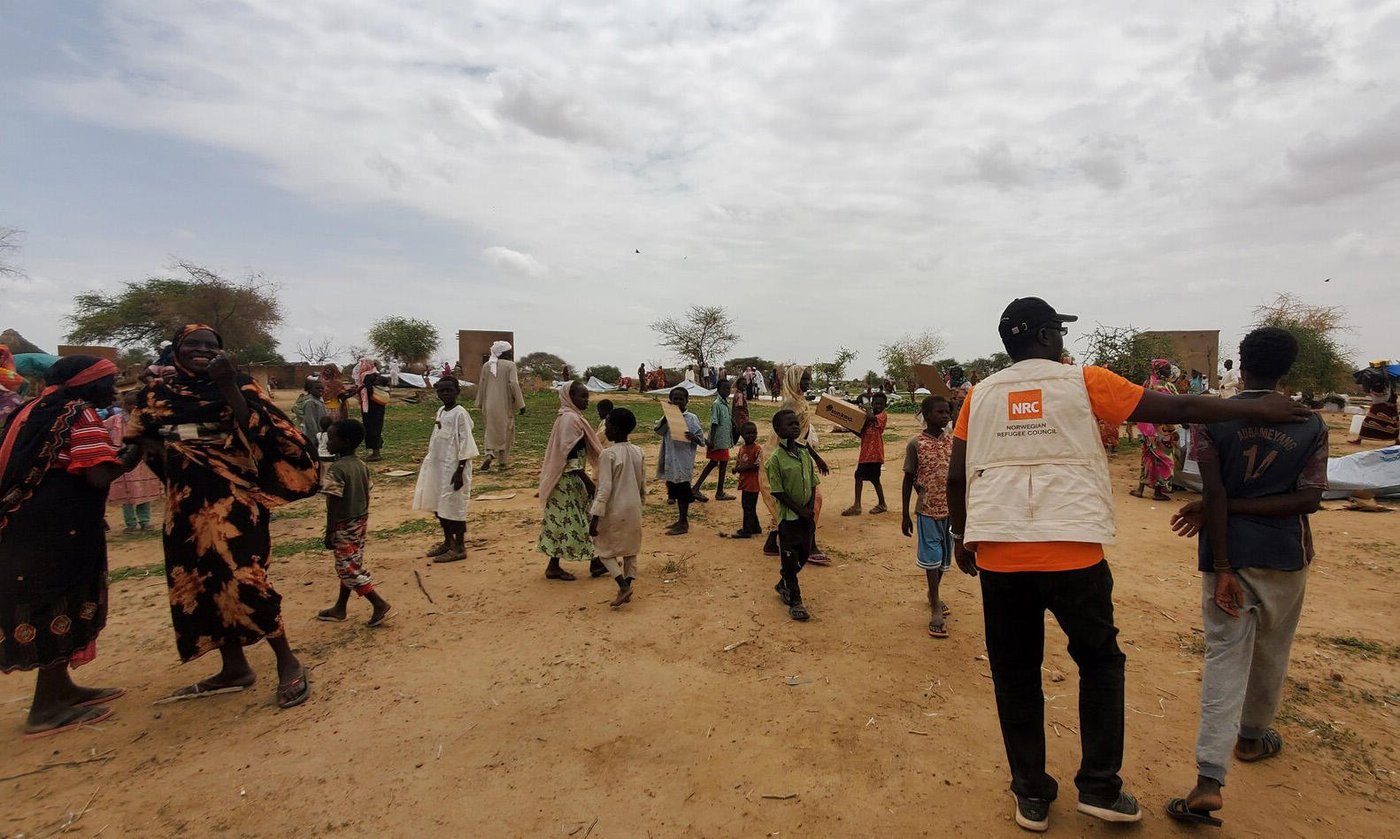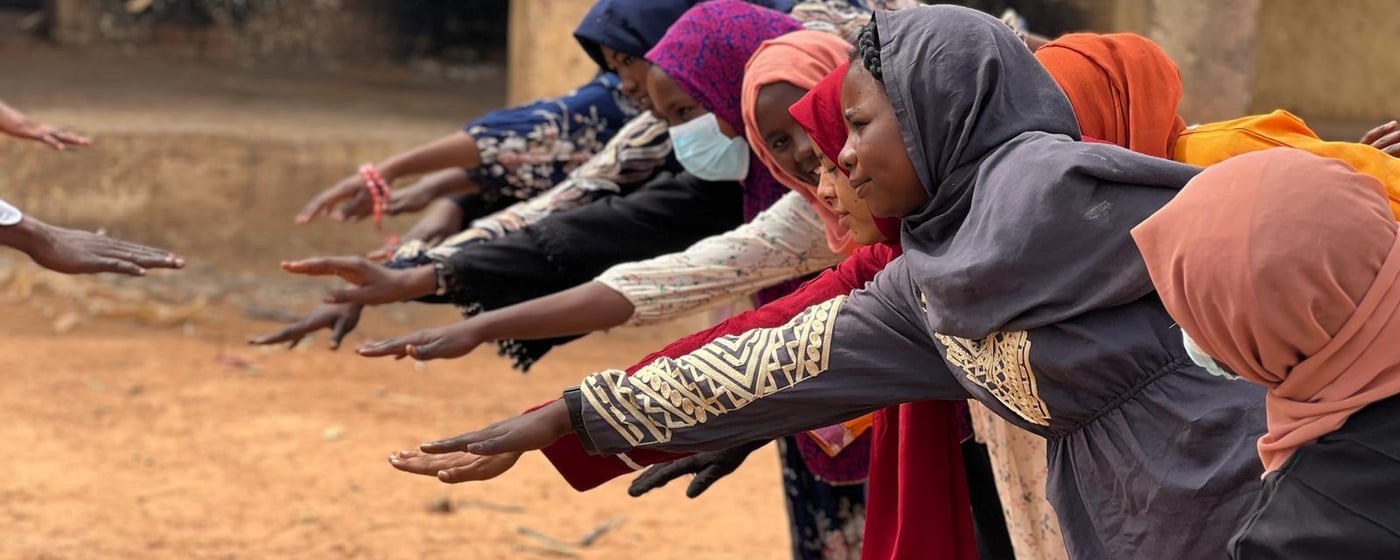One year into the war, there are no signs of the violence ending. Sudan has already become the world’s largest displacement crisis and is likely to become the world’s largest hunger crisis.
What is happening in Sudan?
#1: Spiralling violence
Relentless warfare and indiscriminate violence have led to the destruction of Sudan’s capital, Khartoum, the burning of major cities in Darfur and Kordofan and loss of the country’s breadbasket. The extent of the human toll remains unknown, with reports of 13,000 to 26,000 deaths likely to be an underestimate.
Countless homes have been destroyed and more than a hundred villages and displacement sites have been burnt to the ground, sometimes twice.
Large scale ethnic-based attacks in Darfur have led to mass killings and exodus, while rape and sexual violence have been used as widespread tactics of war.
#2: People are still fleeing for their lives
6.5 million people have been displaced inside Sudan since 15 April 2023, adding to the 3.8 million people already displaced prior to the start of the war. This makes Sudan the largest internal displacement crisis.
Many of these people have been displaced twice. For example, in December, fighting engulfed Al Jazira state – a state that had been sheltering more than half a million people displaced from Khartoum – forcing them to flee yet again.
In addition, 1.76 million people have crossed Sudan’s borders since 15 April to some of the most fragile and vulnerable areas of the world in Chad, South Sudan, Egypt, Ethiopia, Uganda, and the Central African Republic. Across the region, humanitarians are being forced to make very difficult decisions as to where and who to prioritise as there is not enough funding to assist all those in need.
#3: Hunger will kill millions if action is not taken now
Over 25 million people across Sudan, South Sudan, and Chad are trapped in a spiral of deteriorating food security, including at least 17 million in Sudan. Humanitarian organisations have now started to observe hunger-induced displacement in neighbouring countries.
The war risks creating the world’s largest hunger crisis, according to the World Food Programme. Those facing the most acute food insecurity live in areas where violence has been most intense.
#4: Every second person needs humanitarian assistance
Humanitarian needs across Sudan are at record highs with 24.8 million people, or every second person, needing humanitarian assistance in 2024. This is nine million more than in 2023.
#5: Humanitarian access remains heavily restricted
Aid supplies and personnel are often prevented from entering and reaching people in need across the country, particularly in Darfur, Khartoum, Kordofan and Al Jazira. Since December 2023, only 2,000 metric tonnes of assistance have been delivered across conflict lines and there remains approximately 100 visas pending across the international NGO community.
The looming famine should have forced warring parties to allow aid to flow, but aid remains obstructed.
#6: The largest child displacement crisis in the world
About 24 million children in Sudan are at risk of generational catastrophe, according to the UN Committee on the Rights of the Child.
Among these children, 14 million are in dire need of humanitarian support, 19 million are out of school, and four million are displaced, according to the UN Children’s Agency (UNICEF). This makes Sudan now the largest child displacement crisis in the world.
#7: Not enough funding
Despite the magnitude of the war, Sudan has remained vastly neglected. A total of USD 2.7 billion is needed for this year’s Sudan humanitarian response plan. Yet less than 6 per cent has been funded so far. Despite this, humanitarians actors remain committed to Sudan.
Sudanese volunteers in particular have become a lifeline in Khartoum and in some of the most conflict-affected areas of Darfur, Kordofan and Al Jazira. They must immediately be supported so that they can continue to support health facilities, helping the most vulnerable flee conflict-affected regions, and organising hundreds of soup kitchens in many of the hardest to reach areas of the country.




